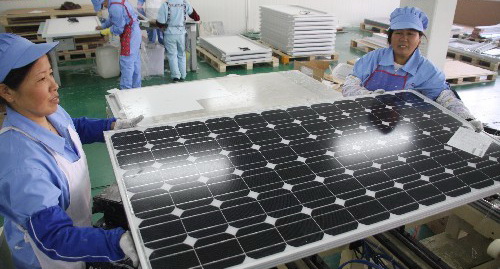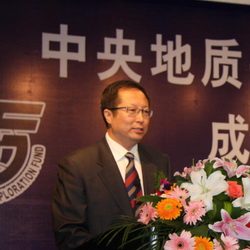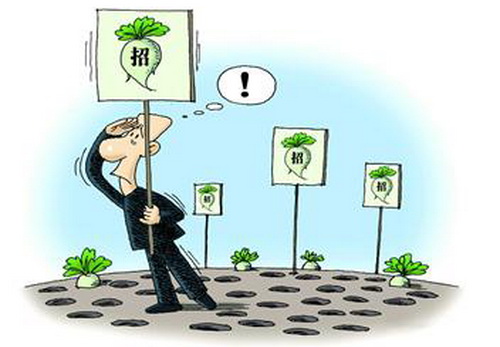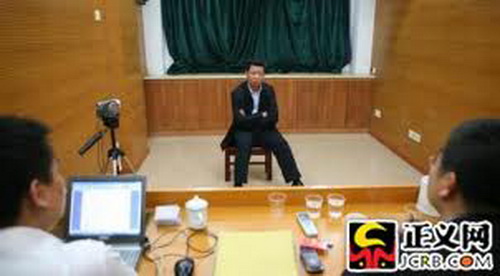

Highlights from the EO print edition, Issue Wrap No. 507, Feb 21, 2011
High-speed Rail's Secret Illness
News, cover
~ The recental dismissal of China's Railway Minister from his position as party secretary on suspicion of "severe violations of discipline" has brought to light many issues involving China's rail system.
~ Severe problems within the system include safety problems, inadequate ticket supply and corruption scandals all of which can be traced back to the former minister Liu Zhijun.
~ The demise of the minister has also uncovered the extent of corruption related to bidding for high-speed rail projects. Although, details of Liu Zhijun's case have yet to be confirmed, there is evidence that suggests many lower-level railway officials have interfered in the awarding of specific projects.
~ Due to extent of this corruption within the railway system, some people have started to question the the quality of China's high-speed rail construction.
~ Liu Zhijun also promised a salary raise for employees of the railway system, however, this never materialized. Liu's replacement, Sheng Guangzu, former head of China's customs administration, has promised to raise the average salary of railway employees by an average of 10 percent a year over the course of the 12th Five-Year Plan period from 2011-2015.
Original article: [Chinese]

80% of Crystalline Silicon Producers Face Prospect of Closure Under Strict New Regulations
News, cover
~ The State Council had long expressed concerns with excess production in the crystalline silicon sector, which produce components used in the production of solar cells.
~ After more than a year of negotiations, the Ministry of Industry and Information Technology (MIIT), the National Development and Reform Commission (NDRC) and the Ministry of Environmental Protection (MEP) jointly released long-awaited regulations in late January that put limits on new entry to the industry and also impose strict environmental and technological standards on existing players.
~ The new regulations also place certain energy-efficiency criteria on existing producers that have to be met within a certain time period.
~ One expert told the EO that it will be difficult for many smaller producers in the sector to meet these new criteria and that at best only ten companies will be able to meet the strict requirements, while 80 percent of producers face the prospect of being excluded from the sector.
~ According to one sales manager at a small crystalline silicon producer, the new rules are obviously intended to support the development of a small number of large, internationally-competitive companies.
Original article: [Chinese]
Why January's CPI Didn't Exceed 5%
News, page 2
~ It was expected that China's CPI would rise by more than 5% in January, but figures released by the bureau of statistics revealed CPI only increased by 4.9%.
~ It seems that the January adjustments to the relative weight that food prices contribute to the basket of goods and services used to calculate China's CPI is not the cause as according to the NBS, if the original weighting had been used, the CPI would have been even lower.
~ Therefore it seems likely that the string of measures taken by the government over recent months are starting to bite. These include a shift from relatively loose to prudent monetary policy, three interest rate rises and multiple increases in the required reserve ratios of the country's largest lenders in addition to the "Sixteen Measures" aimed at controlling price rises announced by the State Council.
~ The article goes on to take a look at the outlook for inflation over the coming year and predicts that inflation will peak in the latter half of the year.
~ Also, if the central government pushes ahead with plans to change the way resource taxes are applied in the country and expands a pilot project being tested in Xinjiang to the rest of the country, this is also likely to increase inflationary pressures.
~ Similarly, any moves to alter the pricing structure of certain utilities like electricity, gas and others will also lift the CPI.
~ If these central government does push ahead with the reforms mentioned above, the increase in CPI for 2011 will likely be around the 5% mark, if they choose to delay reforms, the increase in CPI will probably be about 4%.
~ The author Zhu Baoliang (祝宝良) is the Deputy Head and and Chief Economist at the State Information Center's Economic Forecasting Department
Original article: [Chinese]
 Interview with the Head of China's Central Geological Exploration Fund: Reforming China's Mining Sector
Interview with the Head of China's Central Geological Exploration Fund: Reforming China's Mining Sector
News, page 4
~ Despite the recent surge in the price of internationally-traded resources and the growing attention of China's policymakers to the need for secure access to mineral resources, the country's energy exploration sector is still dominated by unreformed state-owned companies.
~ In an attempt to help improve the ability of these wholly state-owned exploration companies seek capital and perhaps even list on the stock market, the Central Geological Exploration Fund is taking on a role similar to that of the State Counci's State-owned Assets Supervision and Administration Commission (SASAC) in helping to coordinate reform of the companies.
~ The Central Geological Exploration Fund is based within the Ministry of Land and Resources and was established with the goal of helping China's mining industry raise captial.
~ Cheng Liwei (程利伟), the Director of the Management Center of the Central Geological Exploration Fund, explains to the EO how they plan to reform these large state-owned mining companies.
Original article: [Chinese]

More Job Opportunites at Home Give Migrant Workers More Reason to Stay
Nation, page 9
~ Foxconn, a major component manufacturer and subsidary of Hon Hai, a public company that's listed on the Taiwan Stock Exchange, is in the process of establishing factories in several western and central provinces of China.
~ The company has also started to recruit large numbers of workers who are residents of these provinces which in turn is leading to a battle for labor resources between the more wealthy eastern and the less-developed central and western provinces of the country.
~ Foxconn's Chengdu plant plans to recruit 250,000 people, while 400,000 positions will also be offered in other other plants in southwest China over the course of this year.
~ Other companies based in these areas are also being forced to raise salaries and provide additional benefits in order to keep their employees.
Original article: [Chinese]
More Maoming Officials Detained in Relation to Corruption
Nation, page 13
~ After China's Spring Festival, Luo Yinguo, the party secretary of Maoming, a city in the wealthy southern province of Guangdong, was invited to by a relevant epartment to attend a conference in the provincial captial of Guangzhou. However, there was no conference - it was a trap set by the provincial level procuratorate and when Luo arrived at the government offices in Guangzhou, he was detained by investigators on suspicion of accepting bribes.
~ Luo is only one of many officials from Maoming who have been arrested for corruption, but his arrest was unexpected as many locals thought that Luo was a humble and cautious official.
~ Calls to crack down on corruption in the city have been heard for a long time and one source familiar with this matter told the EO that it was widely known that official positions were being bought and sold.
~ A Maoming government official told the EO that there are two areas where corruption is especially prevelant in Maoming. One is bribes related to construction projects the other is the exchange of "red envelopes," especiall over the Spring Festival period.
Original article: [Chinese]
Reform of China's Financial System Continues with Revamp of Warrants Market
Market, page 17
~ China closed its warrant market in the late 1990s due to excessive speculation it then re-established the existing warrant market in August 2005, but, due to large losses among retail investors also caused by a huge bubble in the market, trade has slowly withered with only one listed company still offering investors the right to buy or sell its underlying security at a predetermined price on a specific date. Once this warrant expires, China's warrant market will effectively cease to exist.
~ However, financial regulators now intend to resurrect plans to establish a new covered warrant market on both the Shanghai and Shenzhen Stock Exchange.
~ Unlike regular warrants, covered warrants (sometimes also referred to as naked warrants) are usually issued by securities firms or other financial institutions rather than the companies who have issued the shares. Covered warrants also tend to be based on a wider variety of underlying financial products whereas other warrants are only based on a company's stock
~ The Shanghai Stock Exchange is currently formulating regulations that will govern the market for these new covered warrants and the draft rules are expected to be released for public comment and feedback after the meeting of China's top two political bodies in March this year.
~ China's financial regulators have long sort to develop a local derivatives market in order to help companies hedge their risks, the move is also aimed at diversifying the products offered by the two local exchanges which mainly deal in stocks and bonds.
~ The plan to revamp the warrants market is another milestone on the path of financial reform after the China Financial Futures Exchange (CFFEX) opened for business in April last year as did ChiNext - a Nasdaq-like board operated by the Shenzhen exchange.
~ The country's financial regulators also gave a select group of securities companies permission to begin offering margin financing services to select clients.
~ Regulators also issued new rules governing derivatives trading among China's financial institutions.
Original article: [Chinese]
360buy Losing Mantle as China's Cheapest Online Retailer
Corporation, page 25
~ Founded in 2004, 360buy is China's second largest online retailer. The website, which is owned by Beijing Jingdong Century Trading Co., sells a large range of products and its revenue for 2010 is expected to exceed 10 billion yuan, up from four billion yuan in 2009.
~ Based on its reputation for being the cheapest source of electronic equipment, over the past 4 years, the website has overtaken the Nasdaq-listed E-Commerce China Dangdang Inc. and Amazon's Chinese sunsidary Joyo.com to become China's second largest online retailer after Taobao.
~ However, prices on the website are now not as competitive as they once were and it seems that after receiving 500 million U.S. dollars from investors last year, the company has shifted away from its low price stategy.
~ As 360buy manage their own warehouses, they have to pay more attention to dealing with suppliers, which puts more pressure on their cash flow.
~ We'll have to wait and see if this strategy is successful but as Guo Yongqiang from Tsinghua Tongfang argued, only 40 percent of online trade is decided by prices the another 60 percent is based on the level service, delivery speed and interaction with online users.
Original article: [Chinese]

